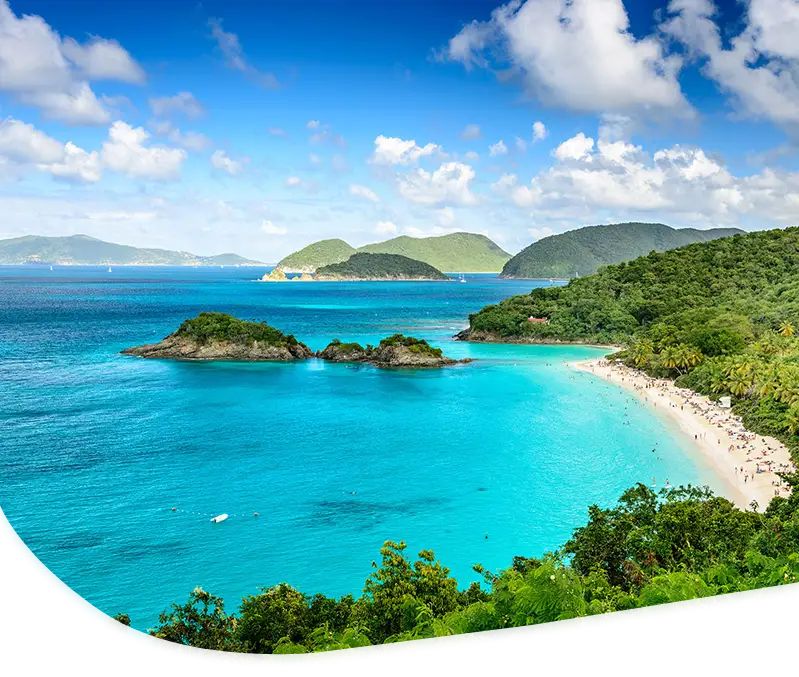Labor Laws in United States Virgin Islands
- Annual Leave: 26 days
- Public Holidays: 17
- Workweek: 40 hours per week.

Get everything you need to hire talent in the US Virgin Islands. Download our comprehensive guide for hiring in this expanding market.
Capital:
Charlotte Amalie
Language:
English
Currency:
United States Dollar
Please enter the following information:
The US Virgin Islands has progressive income tax rates from 0% to 37%.
There is no VAT in the US Virgin Islands.
In the U.S. Virgin Islands, employers and employees are required to contribute to the Social Security system.
Employer Contributions
Employee Contributions
Here are the main work visas available in the US Virgin Islands:
H-1B Visa (Specialty Occupations)
L-1 Visa (Intra-Company Transferee)
O-1 Visa (Individuals with Extraordinary Ability)
Setting up a company in the US Virgin Islands can be expensive and complex. Global Expansion simplifies your entry into this market.
We handle hiring, HR, and payroll while ensuring compliance with local regulations, all without establishing a local entity.
Our US Virgin Islands Employer of Record (EOR) solution lets you focus on your business growth.